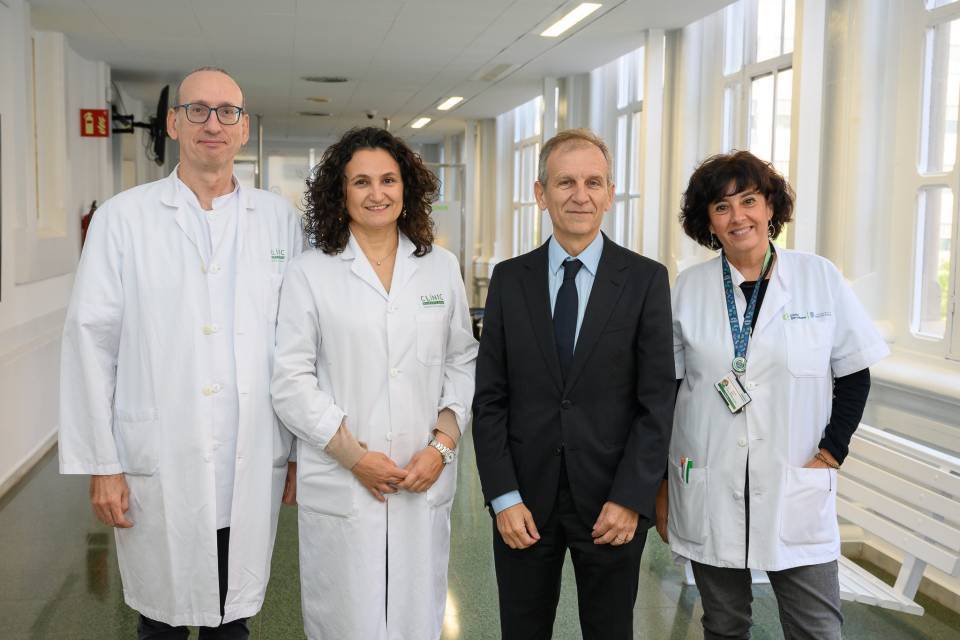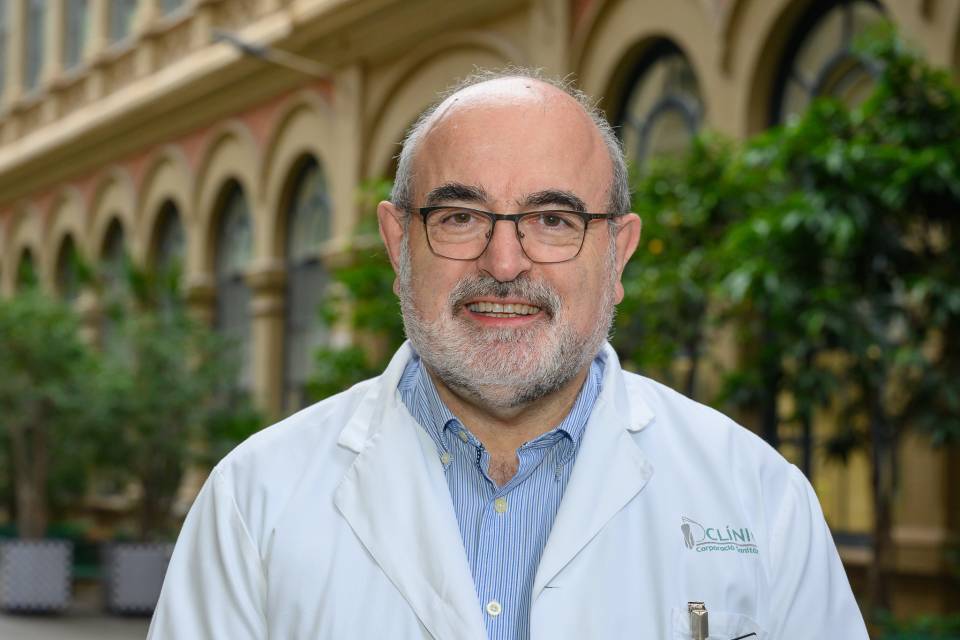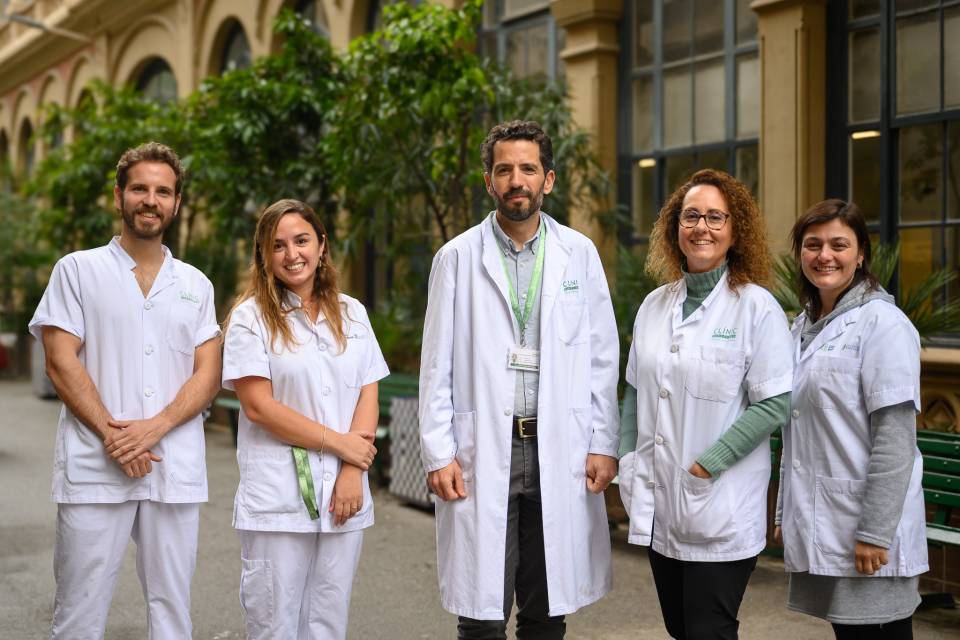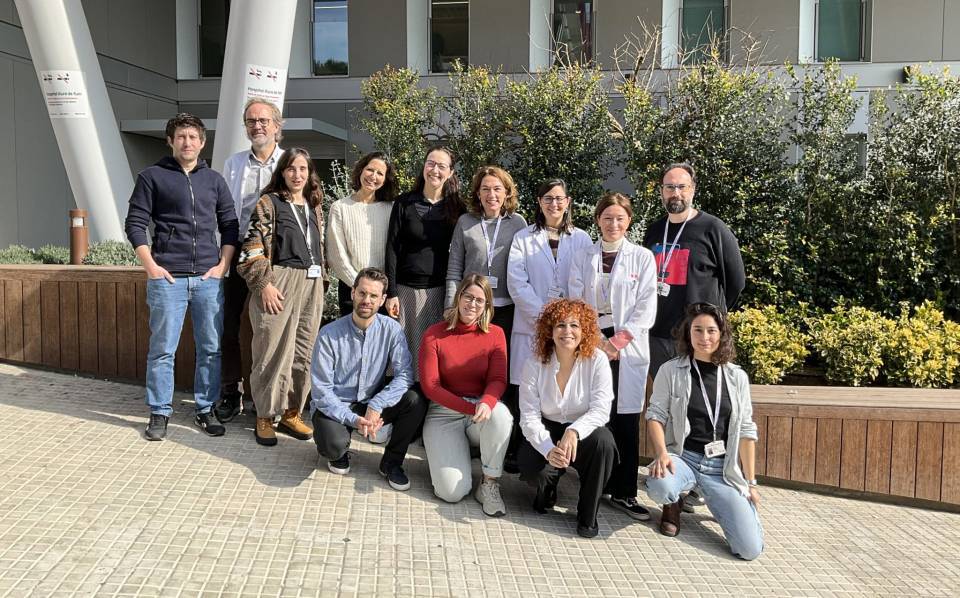Today, IDIBAPS-Hospital Clínic Barcelona presented a new artificial intelligence (AI) tool that will assist in the diagnosis of prostate cancer. This initiative is part of the European INCISIVE project. Funded by the European Union, the INCISIVE project has enabled the creation of AI diagnostic support services and a repository of federated data with images (as well as associated clinical data) to aid in the diagnosis of lung, colorectal, breast and prostate cancer.
IDIBAPS-Hospital Clínic Barcelona was the only Spanish hospital involved in the project, focused on prostate cancer diagnosis. The project brought together 26 partners from nine different European countries. The two other partners from Spain were TIC Salut and the Barcelona Supercomputing Center (BSC-CNS). The project was led by Dr Antonio Alcaraz, the head of Hospital Clínic’s Urology Service and the head of IDIBAPS’ Genetics and urological tumours research group, and Dr Lourdes Mengual, a researcher in the same IDIBAPS research group. Today’s presentation was also attended by Dr Carles Nicolau, the head of the Genitourinary Radiology Section of the Radiology Service (Imaging Diagnostic Centre) and Dr Rosa Ramos, the director of the Clinical Institute of Nephrology and Urology.
IDIBAPS-Hospital Clínic Barcelona has therefore worked on a set of multimodal tools based on AI and a repository of healthcare images to enhance the analysis of images related to diagnosing, predicting and monitoring prostate cancer. The tool is now operational.
This project has enabled the development of AI tools that support healthcare professionals’ decision-making in cancer care. The AI algorithms that have been developed focus on patient prioritisation, lesion localisation and segmentation, cancer diagnosis and staging and the risk of metastasis for the four types of cancer.
The AI tool gives radiologists additional support in their assessments, providing crucial information to refine the final diagnosis. The tool developed for prostate cancer diagnosis works as follows: the medical professional uploads an MRI scan to the system and the tool generates a report indicating whether the image shows signs that could lead to the development of prostate cancer in the patient.
Dr Antonio Alcaraz, the head of the Urology Service, says that ‘there is no shortage of radiologists. We are simply going to provide our patients with better diagnoses. With tools like this, we will democratise patient care from anywhere in the world. This is a new way to attend to patients’.
The repository has four million cancer medical data points and associated clinical data from over 11,000 patients. Hospital Clínic has contributed 400 medical images (MRIs) with associated data from patients with prostate cancer.
Coordinated by Maggioli SpA, the INCISIVE consortium includes 26 partners from nine countries (Belgium, Cyprus, Finland, Greece, Italy, Luxembourg, Serbia, Spain and the United Kingdom) and has received funding from the European Union's Horizon 2020 programme.
Prostate cancer is the most commonly diagnosed tumour in men and accounts for approximately 15% of all diagnosed tumours. Its occurrence is linked to age and is more frequent in men over 60 years of age. With the advent of the tumour marker Prostate Specific Antigen (PSA), which can be detected in a blood test, the diagnosis of early-stage prostate cancer has increased considerably.
Hospital Clínic Barcelona has a multidisciplinary team made up of urologists, radiation oncologists and medical oncologists, radiologists, pathologists and specialised nursing staff that deal with diagnosing and treating prostate cancer. This team discusses and addresses complex cases to decide the best treatment to offer patients.
The Urology Service diagnoses prostate tumours using ultrasound and biopsies. It performs between 300-400 biopsies per year, whether guided by magnetic resonance imaging or otherwise.




